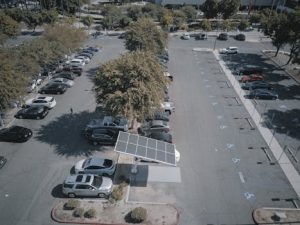Blockchain Technology Could Revolutionize Vehicle Ownership
In recent years, blockchain technology has gained widespread attention for its potential to transform industries and revolutionize existing systems. While its most popular application has been in the realm of cryptocurrencies, blockchain technology is now being explored for its potential in one particular area – vehicle ownership. As discussions around the potential of blockchain continue, many are beginning to believe that this technology could drastically change the way we view vehicle ownership. In this article, we will delve into the details of how blockchain technology could revolutionize vehicle ownership and what this could potentially mean for the future of transportation.
The Basics of Blockchain Technology
Before we delve into the specifics of how blockchain technology could disrupt the automotive industry, let’s first understand what it is and how it works. In simple terms, blockchain is an open, decentralized digital ledger that records transactions across a network of computers. Each block in the chain contains a timestamp and a link to the previous block, making it virtually impossible to alter or tamper with the data. This feature has made blockchain a popular tool for creating secure and transparent systems.
The Current State of Vehicle Ownership
Currently, the process of buying and owning a vehicle involves multiple intermediaries – from dealerships to insurance providers and government agencies. This not only makes the process time-consuming but also adds to the cost of vehicle ownership. Additionally, the traditional paper-based systems for vehicle registration and titling are prone to errors and fraud, causing inconvenience and financial losses for the parties involved.
Moreover, in many countries, the lack of transparency and traceability in the supply chain of used vehicles has led to the prevalence of car theft and fraudulent practices. Vehicle owners often face challenges in proving the authenticity of their vehicles, leading to complications in the resale process. These issues have long been a pain point for the automotive industry and have created a demand for a more efficient and secure system of vehicle ownership.
How Blockchain Technology Can Transform Vehicle Ownership
Secure Verification of Vehicle History
Blockchain technology can offer a secure and transparent method for recording and verifying the entire history of a vehicle. All information related to the vehicle, such as its ownership records, maintenance history, and accident reports, can be stored on a blockchain ledger. This will allow potential buyers to verify the authenticity of a used vehicle, reducing the risk of purchasing a stolen or fraudulent vehicle.
Efficient Processes for Financing and Insurance
In the current system, there are often delays in securing financing and insurance for a vehicle due to the involvement of multiple intermediaries. With blockchain, the entire process can be streamlined, allowing for faster and more efficient financing and insurance arrangements. Smart contracts, a feature of blockchain technology, can automate the validation, execution and enforcement of contractual agreements, reducing the need for intermediaries and manual processes.
Eliminating Paperwork and Red Tape
The traditional process of vehicle registration and titling involves a significant amount of paperwork and bureaucratic processes. Blockchain can simplify this process by creating a digital record of all transactions and reducing the need for physical paperwork. This will not only save time but also reduce the risk of errors and fraud, making the entire process more efficient and cost-effective.
The Road Ahead
The use of blockchain technology in vehicle ownership is still in its infancy, but the potential for disruption is immense. Several automakers, including BMW and Ford, have already started exploring blockchain for various applications within the industry. Additionally, governments in countries such as Sweden and the United Arab Emirates have begun implementing blockchain-based systems for vehicle registration and licensing.
However, there are still challenges that need to be addressed before blockchain can fully transform vehicle ownership. These include issues related to data privacy, standardization of technology, and integration with existing systems. As blockchain technology continues to evolve and mature, we can expect to see significant changes in the way we buy and own vehicles.
The Final Word
In conclusion, blockchain technology has the potential to revolutionize the way we view vehicle ownership. By providing a secure, transparent, and efficient system, blockchain can solve many of the pain points currently associated with buying and owning a vehicle. While there are still hurdles to be overcome, the future looks promising for a blockchain-powered automotive industry.










